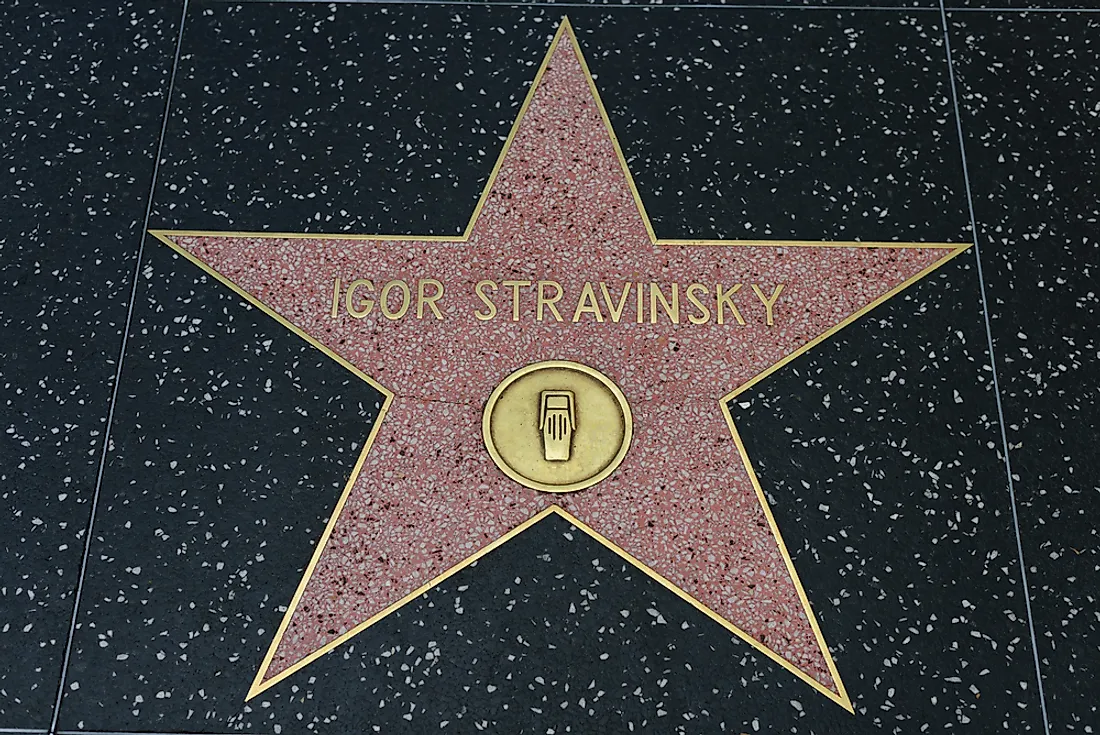Igor Stravinsky - Famous Composers in History

Igor Fyodorovich Stravinsky was a Russian pianist, composer, and conductor; he acquired French and American citizenships during his lifetime. He was born on June 17, 1882 in the suburbs of St. Petersbur, the imperial capital of Russi . His father, Fyodor Stravinsky was also a renowned bass in St. Petersburg’s Mariinsky theatre and Kiev opera house. He is widely known as among the 20th century most influential composers.
Early Life
Stravinsky was born in Oranienbaum and spent his early life in St. Petersburg. Stravinsky took lessons on how to play piano as a young boy, and though he loved music, his parents wanted him to pursue law. Stravinsky joined University of St. Petersburg to pursue law in 1901, though he rarely attended classes. Stravinsky put up with Rimsky-Korsakov, a leading Russian composer at Heidelberg, in 1902, and the composer suggested that Stravinsky should take private lessons as a composer rather than join the University of St. Petersburg Conservatoire. Stravinsky ended up spending more time on music rather than attending law classes, and in April 1906 he received diploma for half the course. In 1905, Stravinsky focused entirely on music taking private lessons under the guidance of Rimsky-Korsakov twice a week until 1908 when the composer died. Stravinsky married on January 23, 1906.
Career
Stravinsky’s work can be separated into three phases, a Russian, neoclassical, and the serial period. The Russian/primitive period ran from 1907-1919. This phase began with Stravinsky's compositions while still a student under Korsakov. Some of the pieces of this period include Faun and shepherdess, The Symphony written in E-Flat Major, and Scherzo Fantastique. Stravinsky wrote a Funeral song in 1908 to commemorate Rimsky-Korsakov’s death. The song was played once during its opening at the St. Petersburg conservatory then it was not heard and was thought lost until it was played again in September 2015. It was also played once again for the first time on December 2, 2016, and it was well received. Most of Stravinsky’s early works showed influence from Rimsky-Korsakov.
The neoclassical period covers compositions from 1920 to 1954. During this time, Stravinsky explored and used musical styles from the classical period. His pieces at this time include Octet, the symphony of Psalms, the Serenade in A, and the concerto for piano and winds.
The serial period covers compositions from 1954 to 1968. Stravinsky's compositions at this time used the serial technique, and some of his pieces include Agon, Canticum sacrum, Threni, and the flood.
Major Contributions
Stravinsky has made several contributions to the music industry and has been widely known for his musical compositions which used different compositional styles. The Rite of Spring is one of his notable works with a remarkable use of rhythm. The Firebird and Petrushka are some of his major compositions. Stravinsky also published several books during his career.
Challenges
During World War I, Stravinsky and his family were living in Switzerland, and since Russia was not keen on the Berne convention, it became hard for Stravinsky to collect the royalties of some of his ballets Russes compositions which led him to have financial difficulties. Performances of Stravinsky’s works were banned in Russia from 1933 until 1962. Stravinsky moved to the United States in 1939 where he worked and lived until his death. On January 15, 1944, Stravinsky had an incident with the Boston Police over his rearrangement of the US national anthem, Star-Spangled Banner; he recieved a warning that authorities could impose a fine on him.
Death and Legacy
Stravinsky passed away at the age of 88 on April 6, 1971, due to heart failure. He is viewed as one of the most distinguished composers of the 20th century. Stravinsky is known as one of the composers who pushed boundaries of musical design as he used different styles in his compositions. Stravinsky was awarded the Sonning Award in 1959 and 1987, and after his death he was awarded the Grammy award for Lifetime Achievement.











